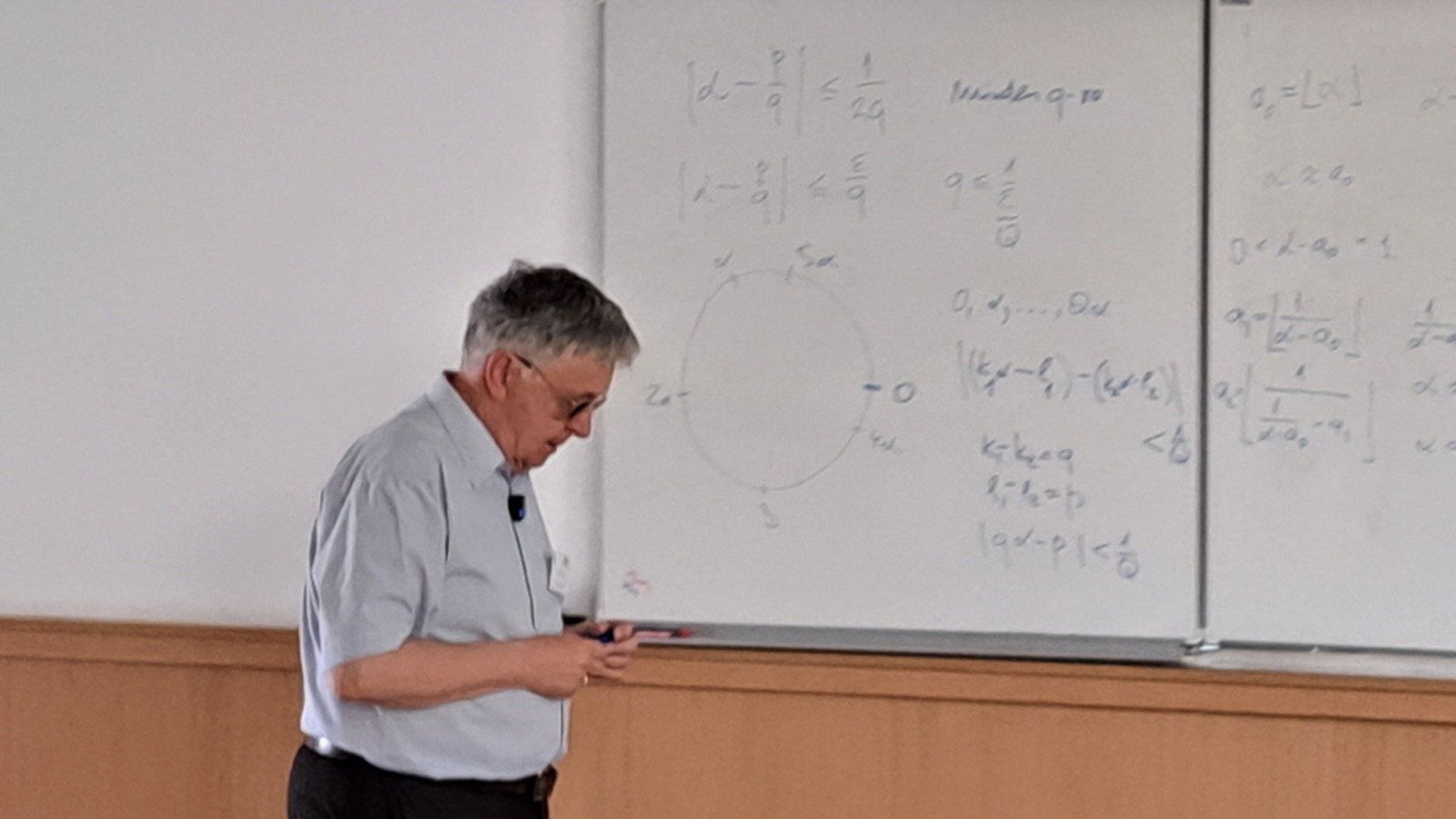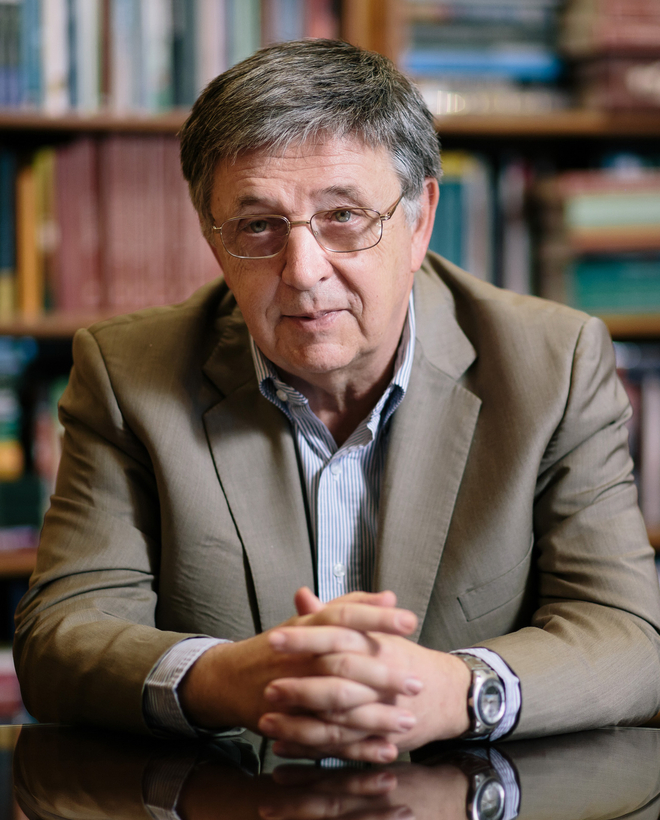László Lovász


László Lovász
Brilliant mathematician and theoretical computer scientist, your pathbreaking contributions in combinatorics, a branch of pure mathematics, have led to real-life applications in computer science, engineering and technology, statistics, and science that serve and advance humankind. Over time you have received nearly every award a mathematician can earn, including the Abel Prize, the highest award in mathematics. We are honored that you have agreed to receive one more, from the university where you taught and conducted research for over a half decade, and which itself is honored to present you with the degree of Doctor of Engineering and Technology.
László Lovász, the Abel Prize-decorated mathematician renowned for his leadership in the field of combinatorics, is a professor emeritus of at Eötvös Loránd University in Budapest and a former senior researcher for Microsoft. Currently he is a Research Professor of the Alfréd Rényi Institute of Mathematics. From 1993 to 1999 he was a member of the Yale faculty, serving as the William K. Lanman Jr. Professor of Computer Science and Mathematics. He is recognized not only as a polymath who brings holistic perspective to his work, but also as a generous mentor to rising scholars of mathematics.
Born in Budapest, Lovász soon emerged as a prodigy among math prodigies, enrolling in a special mathematics program at his secondary school. At age fourteen he discovered an article by the great twentieth-century Hungarian mathematician Paul Erdös, whose work inspired in him a passion for problem-solving and the pursuit of knowledge. (One of his defining memories is of meeting Erdös when Lovász was in high school.) He would go on to take the gold medal at the International Mathematical Olympiad for three years running (1964–1966), a precursor to a career in which he has won many of the most prestigious mathematical prizes. He completed his undergraduate and graduate education at Eötvös Loránd University.
“Research consists of balancing between focused in-depth research of the problem you find most important at a given time, and following and understanding broad scientific connections in your area and beyond. Only such balance leads to really substantial scientific results.”
Lovász’s work as an educator has spanned continents and disciplines. Before coming to Yale he was a professor and chair of geometry at József Attila University, served as professor and chair of computer science at Eötvös Loránd University, and held visiting appointments at Vanderbilt University, the University of Waterloo, Universität Bonn, the University of Chicago, Cornell University, the Mathematical Sciences Research Institute, and Princeton University. He is known for his visionary talents and research methods—and, equally, for his enthusiasm for discussing mathematical problems with anyone who approaches him. From his achievement of proving the weak perfect graph conjecture to his research that co-established the LLL (Lenstra-Lenstra-Lovász) algorithm, he is both mathematician and polymath, a contributor to nearly every area of discrete mathematics and a versatile, strategic thinker who sees individual problems as launching pads to develop larger theories.
Lovász, who has served on numerous editorial boards, including as editor in chief of Combinatorica, is the author of Large Networks and Graph Limits, which has become foundational to the study of extremely large networks. For his findings and expansive influence, he has been recognized with the Hungarian National Order of Merit (1998), the Knuth and Wolf prizes (both in 1999), the Gödel Prize (2001), the Kyoto Prize (2010), and the Delbert Ray Fulkerson Prize, co-conferred by the American Mathematical Society and the Mathematical Programming Society (2012). His citation for the Abel Prize (2021)—mathematics’ equivalent of the Nobel Prize—lauds his “outstanding contributions to the advancement of both the academic and technological possibilities of the mathematical sciences.” He is the recipient of previous honorary degrees from the University of Waterloo, the University of Calgary, University of Szeged, Budapest University of Technology, Tel Aviv University, Babes-Bolyai University, Cluj, University of Obuda, Eötvös Loránd University, and Charles University in the Czech Republic. He is a past president of both the International Mathematical Union and the Hungarian Academy of Sciences, an elected member of the National Academy of Sciences and several other national academies.
A dual citizen of Hungary and the United States, Lovász is married to fellow mathematician Katalin Vesztergombi (whom he met as a high school student); they are the parents of four children.